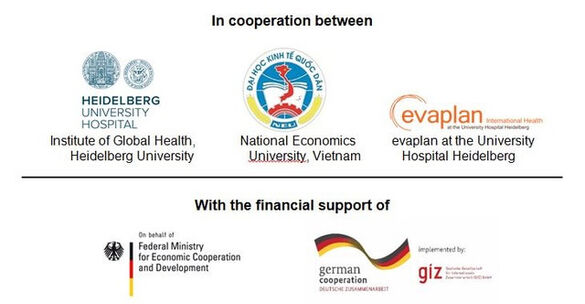The Visible Hand- The many Facets of Social Health Protection Financing (3 ECTS)

Content Overview
The course is organized in four main modules. It gives very comprehensive overview on the role of economics in dealing with scarce resource and fair allocation of goods and services in health care. The course provides an introduction into measuring the flow of funds in a health system through different forms of health care financing arrangements. It discusses why health care should not be left to the market allocation mechanism and why government might intervene.
The course reflects on uncertainty both with regard to accident or disease and the effectiveness of treatment and what this means for financing health care. Health insurance theory and in particularly moral hazard and adverse selection are discussed. The major forms of financing health care are reviewed, including the role of private health insurance. One module reflects on Universal Health Coverage and the need for a moral basis when justifying large-scale government intervention.
The course looks at many practical aspects that need to be considered when setting up a health purchasing organisation.
Main Topics
Module 1: Illness, economics and the financing of health care
Module 2: Module 2: Justice and Efficiency
Module 3: Uncertainty and health insurance
Module 4: Putting theory into practice: some elements of a health purchasing organisation
Target Group
Social protection sector professionals, Public health professionals, policy makers, private companies and relevant public administrations, project planners and coordinators, independent of the geographical origin.
Prerequisites
This course is held in English. Fluency in English (Reading, Speaking and Writing) is required.
Learning Objectives
By the end of this course participants should be able to:
- Understand key concepts of economics and explain the key role of equity when it comes to paying for health
- Explain key concepts in insurance theory
- Argue why health financing needs an ethical basis to justify government intervention
- Describe financial consequence of health care and understand the reasoning behind actuarial analyses
- Explain the idea behind developing a benefit package and discuss the concept of Universal Health Coverage in the context of health insurance
- Describe the concept of fiscal space and why it is need when expanding coverage
- Sketch key elements of managing the financing, quality and access
Teaching and Assessment
The course is offered as a self E-learning course, providing a flexibility to the students to enter and complete the modules at their convenience. It uses a mixture of provision of content in lecture modus, case studies on a practical implication of the concepts, self-test questions, case studies. Two electronic platforms for organizational questions and technical questions give at any time the opportunity for direct contact to the main tutor of the course and technical experts, who are ready to answer questions and give additional input in case of need.
The course is with 90 h students investment time, incl. modules completion, reading materials, discussions on the online platform, possible chats with tutors or experts.
Participants’ learning will be assessed on:
- Full completion of the modules and assignments within the modules (60%)
- Active participation in technical discussions on the platform of the course (10%)
- Final test (30%)
Facts
Duration and Accreditation
90 hrs SIT, 3 ECTS
Course Fee
General Admission € 600
A non-refundable payment of € 200 is due upon registration. The amount will be credited towards the whole course fee.
Registration
All applications should be submitted online here. The course is accessible at any time as soon as the registration is confirmed
Course Coordinators
PD Dr. med. Svetla Loukanova
Department of General Practice and Implementation Research, Heidelberg University
evaplan at the University Hospital Heidelberg
Secretary Office
Heidelberg Institute of Global Health Heidelberg University, Germany
Anne-Kathrin Fabricius M.A.
Im Neuenheimer Feld 365
69120 Heidelberg, Germany
E-Mail: anne-kathrin.fabricius@uni-heidelberg.de
Phone: +49 (0) 6221/56–4149
